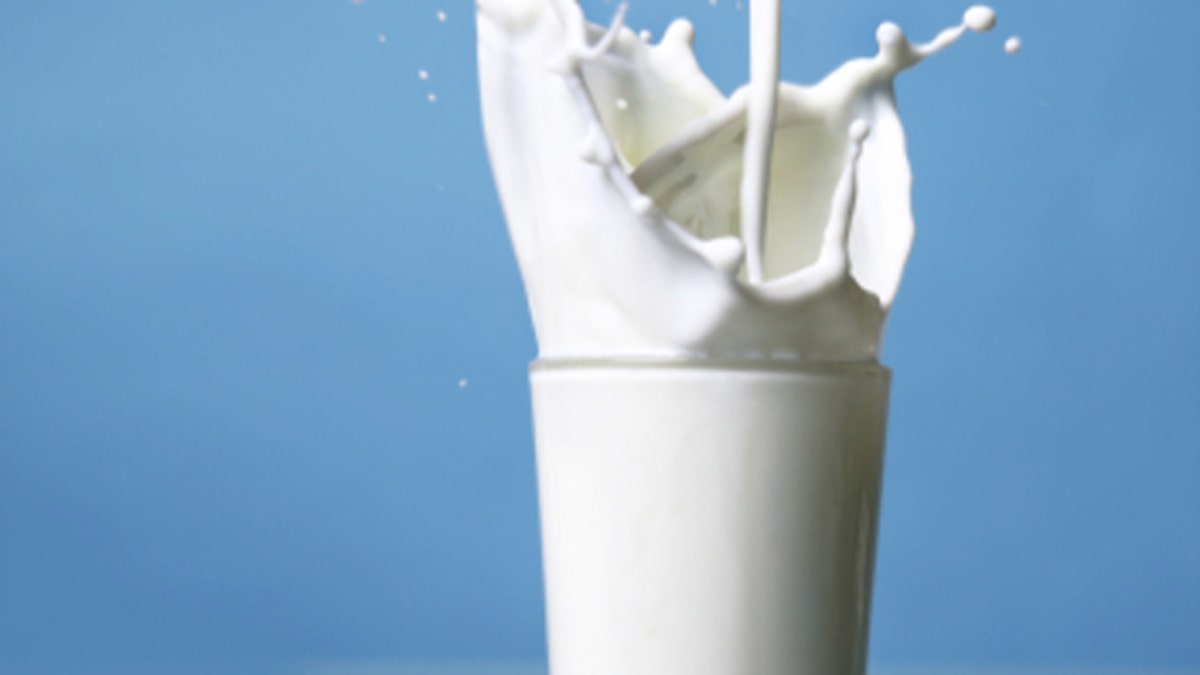
(iStock)
A Swiss company called Eurolactis recently announced they'll be launching the milk in Europe, the United States, Asia, and Australia. And Eurolactis doesn't plan to stop at milk: It's also launching a high-end donkey milk chocolate bar, made by a master Swiss chocolatier.
What’s my opinion? Honestly, I've never tasted donkey milk, and I hadn't heard of ingesting it, or products made from it, until very recently. So I did a little investigating. Here are six interesting things I learned.
RELATED: 9 Superfood Upgrades That Will Make Every Meal Healthier
It’s a (very) old trend
There are accounts of Hippocrates, the father of medicine, extolling the virtues of donkey milk. There are also records of its popularity in ancient Rome, and it was used medicinally in France up to the 20th century. In other words, drinking donkey milk is not unprecedented.
It’s nutritionally different from cow’s milk
Compared to other types of animal milk, the donkey variety is actually closest to human breast milk, based on its pH level and nutritional makeup. It also contains less total fat than cow's milk, and packs more anti-inflammatory omega-3 fatty acids. Natural substances in donkey milk have been shown to enhance immunity, which may be helpful for people with conditions like asthma, eczema, or psoriasis.
RELATED: 12 Best and Worst Foods for Psoriasis
There is some research on its benefits
I actually found a handful of studies in the National Library of Medicine archive related to donkey milk. One, published this year in the journal Current Pharmaceutical Design, concluded that donkey milk might help prevent artery hardening, thanks to its ability to dilate blood vessels. Another study, from the Journal of Food Science, deemed donkey milk a “pharmafood” for its nutritional, nutraceutical, and functional properties. After testing the product, these researchers concluded that although donkey milk contains a high amount of lactose, when it’s fermented into yogurt it's a viable option for people with lactose or cow’s milk intolerance.
People are already drinking it
While it may seem odd to many of us, the reality is people around the world are taking advantage of this milk and its benefits. For example, in 2011 the BBC reported that more than 50 percent of the donkey milk produced at a farm outside Bologna, Italy, is sold to pediatric units, for children who can’t consume cow’s milk. Not to mention, it likely tastes better than it sounds; many people say it's odorless and the texture resembles low-fat cow's milk.
RELATED: 31 Superfood Secrets for a Long and Healthy Life
It’s part of a big beauty trend too
In my searches, I came across a number of skin care products featuring donkey milk as the star ingredient. I also read on various skincare forums that many people saw positive improvements in their eczema and with their sensitive skin after switching to donkey milk soap. And once again, I discovered the knowledge of these benefits is nothing new; there are even reports of Cleopatra bathing in donkey milk to keep her skin looking youthful.
We’ll probably see more products to come, but they'll be pricey
Judging from the 269,000 results on Google when I searched for “donkey milk,” I think it’s safe to say it's definitely a thing, and will likely continue to gain popularity. However, donkeys don't produce as much milk as cows do. In fact, it reportedly takes 15 donkeys to produce a gallon of milk. That's one main reason that cheese made from donkey milk (called Pule) costs a hefty $1,000 per pound. Donkey milk farms are also smaller. So the limited supply plus all those desirable health benefits will probably mean a higher price for consumers.
RELATED: Which Non-Dairy Milk Is Right for You?
I personally don’t consume dairy, and I don’t think donkey milk will convert me. But I have clients who really enjoy dairy, including some who struggle with skin conditions like eczema. For those folks, I'd say it’s definitely worth a try. Plus based on the studies to date, I bet we’ll see even more about donkey milk’s potential health benefits in the future.
Cynthia Sass is a nutritionist and registered dietitian with master’s degrees in both nutrition science and public health. Frequently seen on national TV, she’s Health’s contributing nutrition editor, and privately counsels clients in New York, Los Angeles, and long distance. Cynthia is currently the sports nutrition consultant to the New York Yankees, previously consulted for three other professional sports teams, and is board certified as a specialist in sports dietetics. Sass is a three-time New York Times best-selling author, and her newest book is "Slim Down Now: Shed Pounds and Inches with Real Food, Real Fast."
